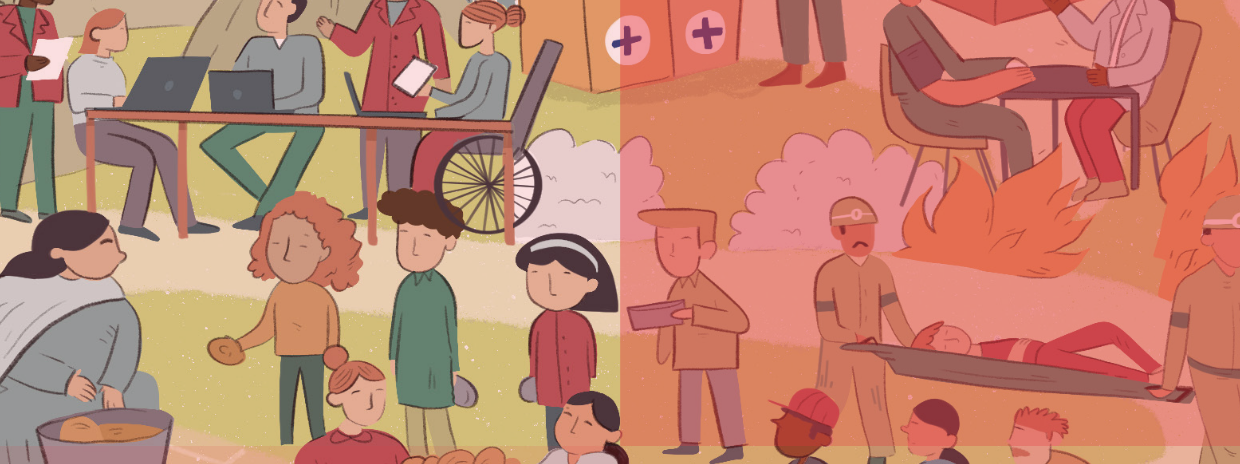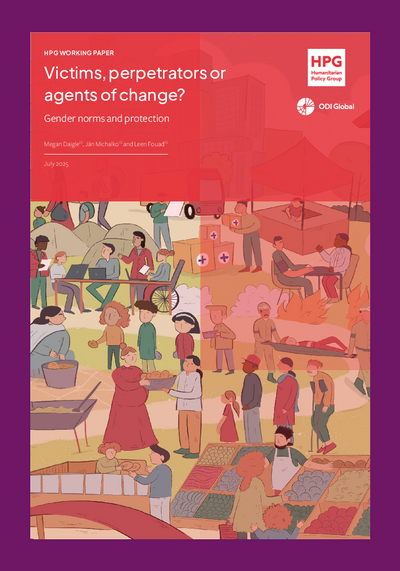Victims, Perpetrators or Agents of Change? Gender Norms and Protection

- Published On
- 12 Aug 2025
- Published By
- ODI Global
- Languages
- English
- Resource Type
- Paper
This scoping paper by the Humanitarian Policy Group (HPG) at ODI Global seeks to broaden humanitarian actors’ understanding of gender norms and their impact on humanitarian crises, particularly conflict, as well as on humanitarian responses. It challenges the often limiting and essentialising deployment of gendered tropes (‘victims’, ‘perpetrators’ and ‘agents of ‘change’) in the humanitarian field.
The paper examines how the humanitarian sector’s approach to gender and protection is often shaped by limiting narratives that reinforce gender norms and overlook the complex realities of people in conflict.
The document encourages the humanitarian sector to use the ongoing “humanitarian reset” as an opportunity to move toward a more nuanced, inclusive, and effective approach to protection. It highlights that people of all genders can be victims, perpetrators, and agents of change simultaneously or at different points in their lives.
The resource also criticizes the narrow focus on gender as being synonymous with women’s needs or the risk of Gender-Based Violence (GBV), arguing that this approach can exacerbate protection risks for diverse populations and perpetuate reductive narratives. The paper advocates for a comprehensive, locally led, and contextualized risk analysis that goes beyond gender-based violence to encompass social power relations.
Who will find this resource useful?
This resource is designed for humanitarian actors and protection professionals who are involved in policy, programming, and response efforts in conflict zones. It is particularly relevant for those working on gender and protection within the international humanitarian system. The paper will also be of interest to:
- Donors and policymakers: The paper suggests that donors can play a key role in incentivising a more gender-responsive approach to funding.
- Wider civil society, including women-led organizations (WLOs): The document emphasises the importance of partnering with women-led organisations and other local, place-based civil society actors to leverage their expertise and networks in conducting risk analysis.
- Feminist and gender specialists: The paper builds on years of work by these groups to embed gender analysis and commitments to gender-responsive humanitarian action.
About the authors
The authors of this scoping paper are Megan Daigle, Ján Michalko, and Leen Fouad, Megan Daigle is a Senior Research Fellow with the Humanitarian Policy Group (HPG). Ján Michalko is a Research Fellow with the Gender Equality and Social Inclusion programme at ODI Global. Leen Fouad is a Senior Research Officer with the Humanitarian Policy Group.
The paper was produced as part of HPG’s ‘Collective action in crises: rights, resilience and reform’ Integrated Programme, and the authors thank a number of peer reviewers and interviewees for their insights.


